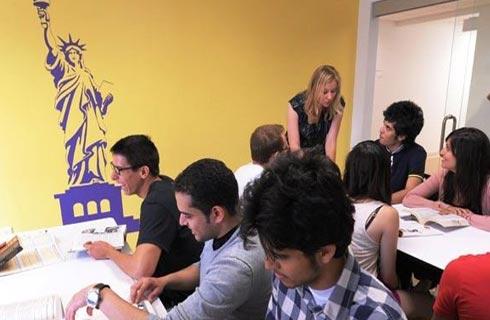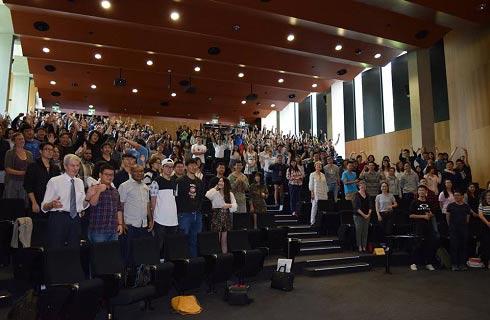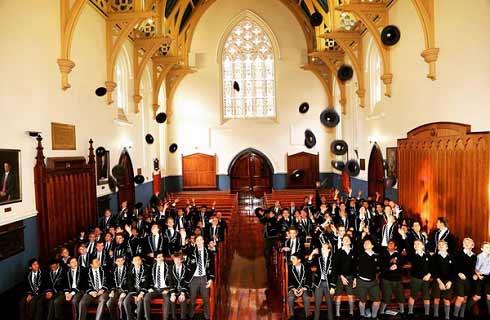语言学(硕士 )
MA Linguistics

学历文凭
Masters Degree (Taught)

专业院系
School of Languages, Literatures and Linguistics

开学时间

课程时长

课程学费

国际学生入学条件
A 2.ii undergraduate degree or equivalent in a relevant subject (e.g. Linguistics, Modern Languages, Translation, Psychology, English Language/Literature, English Education/English Language education).
Applicants with equivalent qualifications or experience and applications from working professionals with non-graduate qualifications will be considered on an individual basis.
IDP—雅思考试联合主办方

雅思考试总分
6.0
- 雅思总分:6
- 托福网考总分:75
- 托福笔试总分:160
- 其他语言考试:PTE score of 56(51),Cambridge English test scores - Equivalent B2 First (formerly CEF) score required -168 .
CRICOS代码:
申请截止日期: 请与IDP联系 以获取详细信息。
课程简介
Bangor University’s Masters in Linguistics provides postgraduate-level training for students who wish to develop a deeper understanding of the empirical, theoretical, and conceptual aspects of Linguistics.; This course is designed for home and international students with a strong interest in linguistics. Two possible paths are offered: one for students who have a BA in Linguistics and want to pursue more advanced studies in the discipline, and one for students with an undergraduate degree in any other subject wishing to achieve a qualification in linguistics.; We are an accessible, friendly Department whose staff are passionate about passing on their expertise and subject knowledge as well as committed to delivering the highest quality learning experience. Our research informs our teaching provision at all levels, meaning you'll learn about topics we're researching right now. Students benefit from enthusiastic staff at the cutting-edge of academic enquiry. Our staff are committed to providing an excellent student experience with strong personalised support throughout the duration of your MA in Linguistics.; Following taught components, students on this degree will complete an independent research-based Masters level dissertation. The staff in our Department provide excellent personalised supervision and academic support for dissertations on a wide range of topics in Linguistics using applied, theoretical, experimental, corpus-based or ethnographic frameworks. These include, but are not limited to:; Students on our Linguistics MA can use state-of-the-art learning facilities which include:; Our staff also have expertise in and provide support for the following:; At Bangor you will be part of a vibrant, innovative research community which is supported through various events throughout the year, ranging from individual talks to informal seminars and workshops to large conferences. Many of these are open not just to academic staff, but also to students and to the general public.
相关申请
 预科
预科 奖学金
奖学金 实习机会
实习机会 在校学习
在校学习 跨境学习
跨境学习 校园授课-线上开始
校园授课-线上开始 在线/远程学习
在线/远程学习
开学时间&学费
学费信息仅供参考,请与IDP联系以获取详细信息
| 开学时间 | 时长 | 学费 | 地点 |
|---|
学校排名

世界排名401
数据源:
泰晤士高等教育世界大学排名
关于班戈大学

班戈大学自 1884 年建校以来,一直致力于提供世界一流的教学和研究。班戈大学位于北威尔士,地理位置优越,适合希望体验充满活力的生活方式和令人兴奋的户外活动的学生。班戈大学有多种学科课程可供选择。该大学是北威尔士医学院的所在地,新设施有助于培训学生从事医疗行业的各种工作。该校还提供海洋科学等专业科学课程,并拥有自己的研究船--马多格王子号。班戈大学的学生在第一年(9 月入学)可享受住宿保障,并可选择加入 150 多个俱乐部和社团中,结识志趣相投的人,建立牢固的社会纽带,在学习之余享受乐趣。班戈大学卓越的课程设施和热情洋溢的教师团队有助于确保所有学生都能享受到量身定制的丰富学习课程。学生将受益于专业级的资源和学习空间,以及真正关心帮助培养下一代行业领袖的教学人员。斯诺多尼亚国家公园距离班戈大学近在咫尺,可以欣赏到壮丽的景色,可以散步,还可以尝试各种户外运动。在稍远的地方,学生可以乘坐火车方便地到达利物浦和曼彻斯特,以及北威尔士的其他旅游胜地,包括众多美丽的海滩,学生可以在课余时间去探索。
本校相关课程

威尔士历史博士/哲学硕士
学历文凭
Ph.D.
开学日期
课程费用总额


威尔士历史MA / PgDip
学历文凭
Masters Degree (Taught)
开学日期
课程费用总额


翻译研究博士/硕士
学历文凭
Ph.D.
开学日期
课程费用总额


实践翻译研究博士学位
学历文凭
Ph.D.
开学日期
课程费用总额


翻译研究(MA)
学历文凭
Masters Degree (Taught)
开学日期
课程费用总额


MSc Sustainable Tropical Forestry (SUTROFOR) (Erasmus Mundus course)
学历文凭
Masters Degree (Taught)
开学日期
课程费用总额

其他相关课程

中学11年级和12年级
 马特·克里斯蒂学院
马特·克里斯蒂学院学历文凭
Secondary School
开学日期
课程费用总额


应用语言学硕士-应用语言学
 昆士兰大学
昆士兰大学泰晤士高等教育世界大学排名:80
学历文凭
Masters Degree (Coursework)
开学日期
课程费用总额


国际研究学士-中文
 昆士兰大学
昆士兰大学泰晤士高等教育世界大学排名:80
学历文凭
Bachelor Degree
开学日期
课程费用总额


脑与精神科学研究生文凭
 悉尼大学
悉尼大学泰晤士高等教育世界大学排名:54
学历文凭
Graduate Diploma
开学日期
课程费用总额


脑与精神科学研究生证书
 悉尼大学
悉尼大学泰晤士高等教育世界大学排名:54
学历文凭
Graduate Certificate
开学日期
课程费用总额


脑与精神科学硕士
 悉尼大学
悉尼大学泰晤士高等教育世界大学排名:54
学历文凭
Masters Degree (Coursework)
开学日期
课程费用总额










 英国
英国